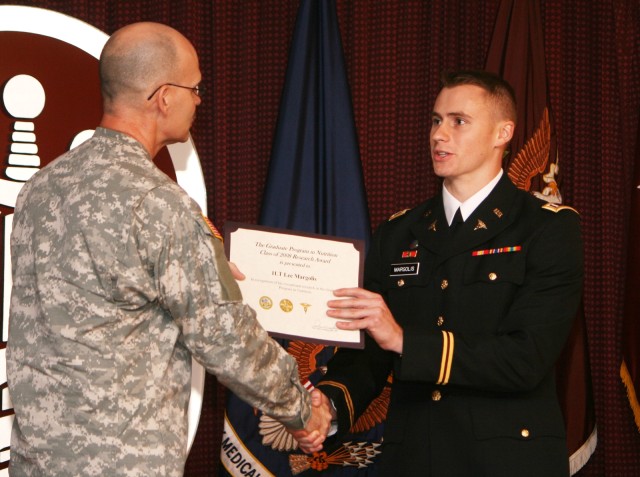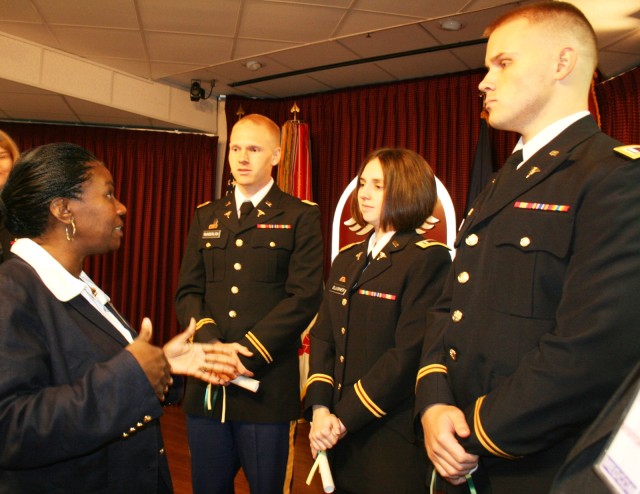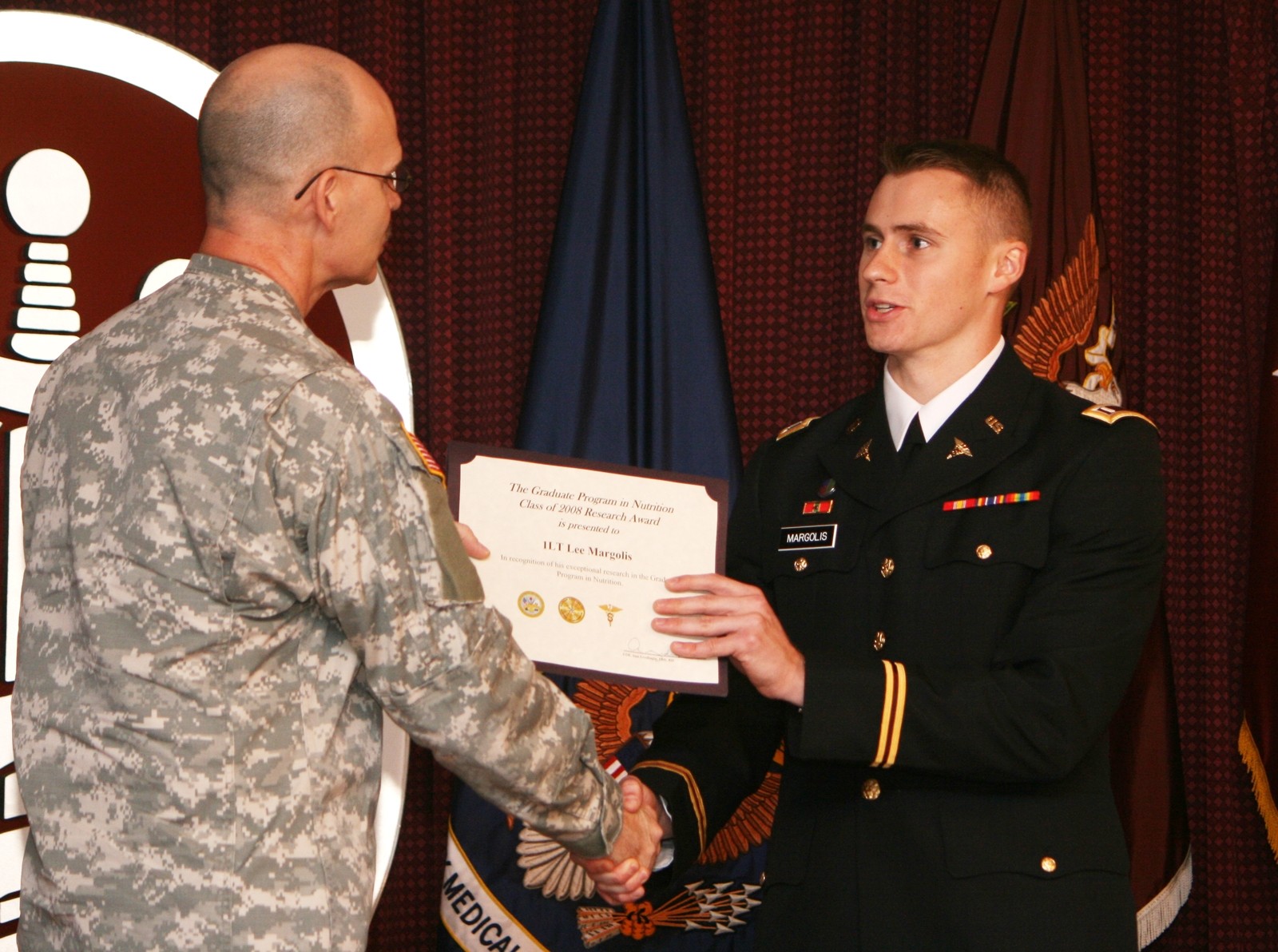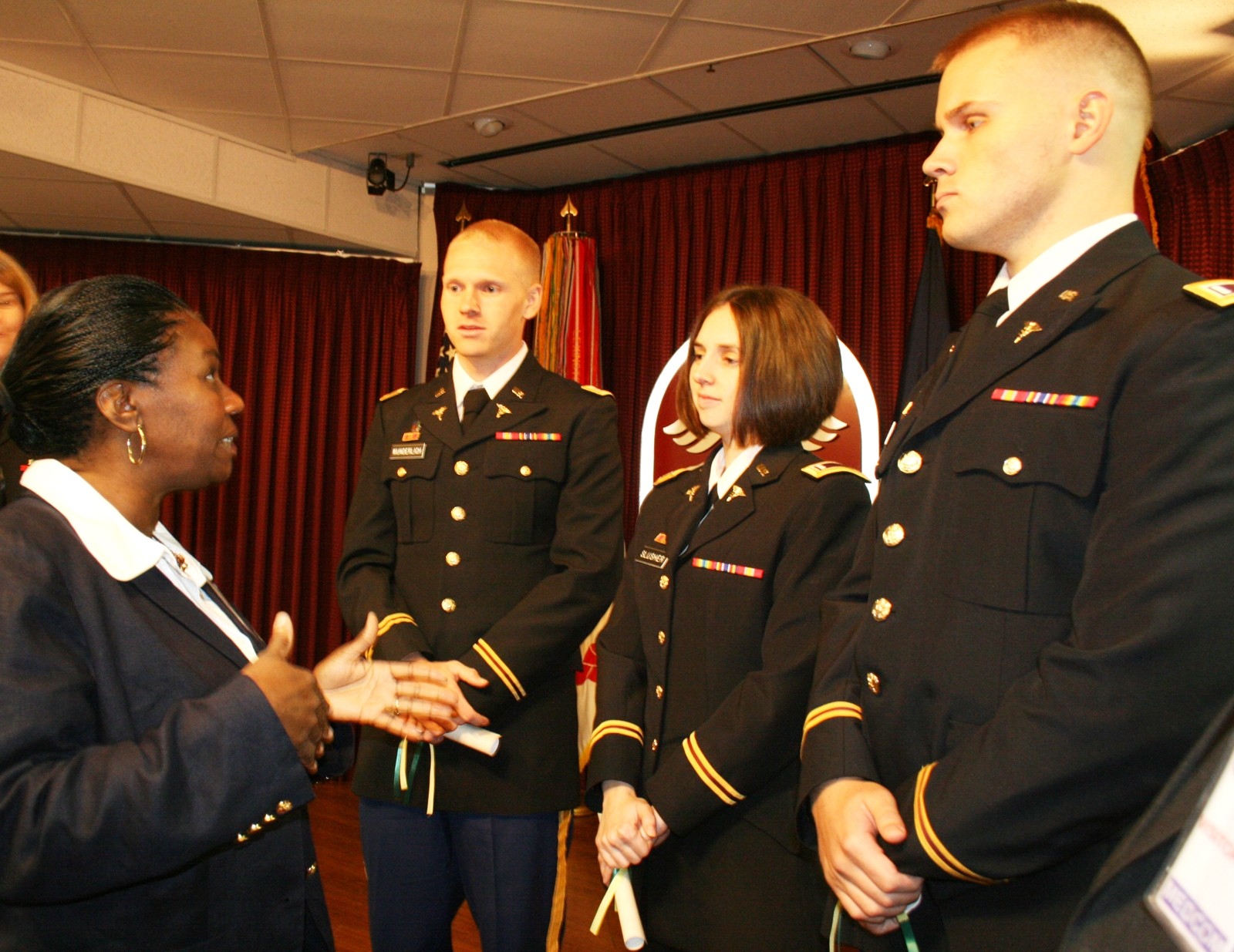FORT SAM HOUSTON, Texas --- The first class of dietitians to complete the Army's Graduate Program in Nutrition received their master's degrees Sept. 26 at Wood Auditorium here. Ten first lieutenants completed the 20-month training and received diplomas from Baylor University, which sponsors the program.
As the Army's newest dietitians, the Soldiers will be assigned primarily to medical centers working with warfighters to make them safer, faster and fiercer on the battlefield, said a program official.
"It was terrific," said graduate 1st Lt. Ryan Koelsch, referring to the new program. "I think they have a great foundation here and we're all pleased and excited with the opportunity we have."
The students began the two-phase program in December 2007 at Fort Sam Houston, said Col. Ann Grediagin, director of the Graduate Program in Nutrition, Academy of Health Sciences Graduate School.
During Phase 1, the U.S. Military-Baylor University Master's Program in Nutrition, a nine-month, 45-credit hour didactic course was taught at the Army Medical Department Center and School.
"It was a huge volume of work that involved classroom work and a lot of practical exercises, where they can develop skills," Grediagin said.
Topics included anatomy and physiology, biochemistry and three nutrition-focused areas: clinical dietetics emphasizing burns and trauma, nutrition and stability operations such as international humanitarian missions, and nutrition and physical and cognitive performance.
Koelsch said that the phase was academically rigorous because of the number of classes, tests, presentations and homework.
Another challenge was juggling being a student and military officer.
"There are very different and they both have intense requirements," said Koelsch, who will be assigned to Blanchfield Army Community Hospital at Fort Campbell, Ky.
For Phase 2, the U.S. Military Dietetic Internship Consortium, students performed a yearlong internship and research project at either the Brooke Army Medical Center here; Walter Reed Army Medical Center, Washington, D.C.; or the Womack Army Medical Center, Fort Bragg, N.C.
Working in clinical rotations, the students worked to build a foundation of skills that used the knowledge gained the previous nine months, Koelsch said.
Duties included inpatient care, where the dietitians had to assess the patients' nutritional status and determine appropriate intervention.
And, while assigned to installation dining facilities, the Soldiers scrutinized the nutritional adequacies of meals, he said.
The students were required to demonstrate 40 dietetic competencies as a requirement for graduation, Grediagin said.
Another requirement was an individual research project in clinical dietetics, stability operations or nutrition and performance. Students had to successfully defend the research and submit a manuscript ready for publication, Grediagin said.
As part of the internship, the students returned to Texas for a couple weeks to complete the Joint Field Nutrition Operations Course at Camp Bullis and learned what deployed dietitians do, she said.
The graduate program takes dietetic practice to the next level, said Chief Dietitian of the Army Col. George Dilly.
"In the past, to have the proficiency and skill set that these graduates have today, was acquired over a period of six to eight years," he said. "It allows these young officers to deploy very early in their careers with the exact skill set that they need on the battlefield."
Previously dietitians went through a nine-month program only, Grediagin said.
"We upgraded it because we realized the skills that our dietitians needed to treat today's Soldiers were indicative of a master's degree," she said.
During the ceremony, two distinguished graduates were recognized.
The Col. Brenda J. Forman Leadership Award recipient was 1st Lt. Stephanie Vanneman.
Vanneman was recognized for several accomplishments, including her role in getting a $10,000 grant for Womack Army Medical Center's Fit Family Program.
First lieutenant Lee Margolis was presented the Research Award, which was given to the student whose research demonstrated originality, scientific merit, military relevance and superior quality.
Margolis' project was titled, "The Effectiveness and Acceptance of Web-based Learning Compared to Traditional-based Learning for Performance in Nutrition Education."
The guest speaker for the graduation was retired Col. Forman, former Army chief dietitian, who helped start the program.
Forman refused to take credit for creating the program, but said she merely "got the ball rolling."
Forman, who retired in July 2004, described the graduation as the culmination of several years of very hard teamwork.
"I'm just excited to see all these bright young minds, who are going to go out and do great things for the Army," she said.
(Jeff Crawley works in the Fort Sam Houston Public Affairs Office)




Social Sharing